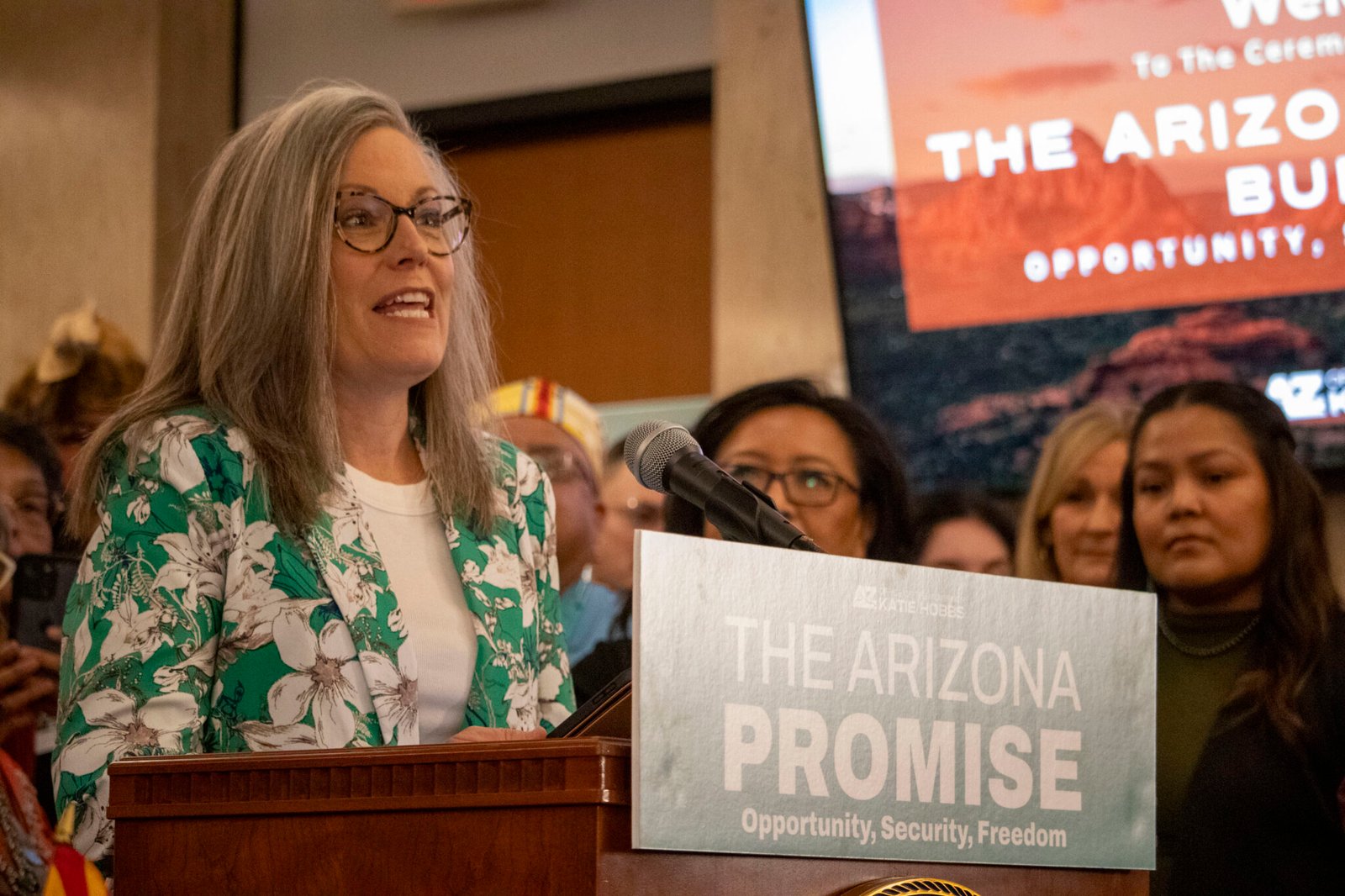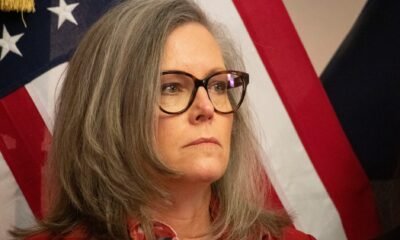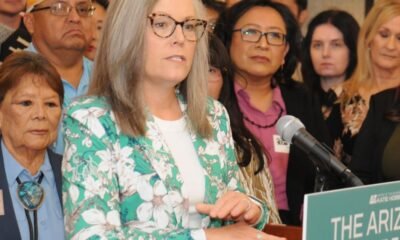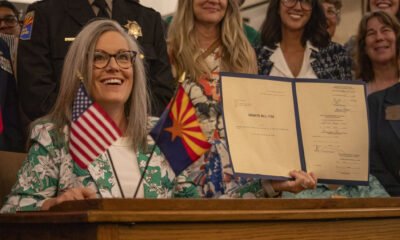ACLU of Arizona
Hobbs Enacts 10 Far-Right Bills, Channeling Project 2025’s Agenda

Arizona lawmakers have shown a significant support for public health reform and local control of charter schools. However, a review by LOOKOUT and Arizona Mirror reveals that a series of bills signed by Governor Katie Hobbs this year align closely with the agendas of far-right organizations, reflecting Trump-era policies.
Among the 220 bills Hobbs enacted, ten have been traced back to documents and testimony from groups such as the Heritage Foundation and Turning Point USA. While the bills may seem unconnected at first glance, they reflect advisories Hobbs had received regarding their origins. Advocacy groups have raised concerns over the potential negative impacts on marginalized communities.
In a statement addressing these findings, Hobbs’ office contended that the critiques misrepresented the situation, highlighting that the bills were passed with varying bipartisan support. “To say a leader like Governor Hobbs is enabling Project 2025 is out of touch with reality,” remarked Christian Slater, Hobbs’ communications director.
Among the key legislation signed into law are:
The conservative bills encompass House Bills 2112 and 2195, which impose restrictions on pornographic content in digital platforms for youth. These measures directly mirror language from Project 2025’s “Mandate for Leadership.” Another significant bill, HB 2679, permits utility companies to charge renewable energy users for coal debt. This decision has raised alarms among environmental advocates, who argue it perpetuates reliance on coal.
Similarly, HB 2164 prohibits “ultra-processed” foods in schools, echoing themes from proposals pushed by Turning Point USA. Other bills mentioned include House Bills 2880 and 2944, as well as Senate Bills 1354, 1604, 1221, and 1358.
These laws are set to take effect within 90 days following the legislature’s adjournment after a budget was passed. Many of these measures contribute to a broader narrative influenced by Project 2025’s objectives.
One of the more controversial pieces of legislation is HB 2112, requiring websites with a significant amount of “sexual material” to implement age-verification processes. While it does not explicitly target LGBTQ+ content, its language is consistent with Project 2025’s guidelines, which frame certain representations as sexualized.
HB 2195 similarly restricts specific advertising in youth-targeted applications, raising fears of censorship in sexual education. The American Civil Liberties Union of Arizona labeled it as an effort rooted in internet censorship.
On the environmental front, HB 2679 allows utility companies to spread coal-related debts to consumers, which many argue contradicts Arizona’s clean energy goals. Critics assert this law serves shareholders at the public’s expense and may delay the state’s shift towards renewable energy.
In mental and behavioral health, bills such as SB 1354, HB 2944, and SB 1604 challenge existing approaches to homelessness and mental health treatment. Advocates have criticized these measures as focusing on punitive solutions instead of addressing root causes like lack of mental health resources.
HB 2880, which bans overnight encampments at Arizona colleges, was introduced in reaction to protests related to Palestine. This aligns with Project Esther’s initiatives to curb dissent among youth organizations, prompting further scrutiny of its implications for free speech.
The Heritage Foundation’s influence extends to legislation prohibiting public funds from investing in Chinese companies, showcasing a coordinated agenda not limited to domestic policies. Legislative responses to public health and education policies reflect a similar trend, with many measures embracing far-right ideologies.
While Hobbs defends these laws as common sense with bipartisan support, criticisms suggest a potential misalignment with the values of those who initially supported her. As political pressures mount ahead of upcoming elections, the actions taken by her administration may have long-lasting implications on public policy in Arizona.


















